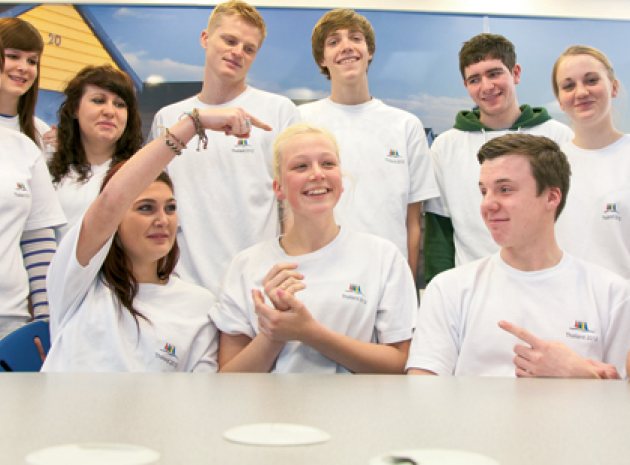For Nigel Mountford, head teacher at Harwich and Dovercourt High School, ‘off the shelf’ simply means ‘not good enough’. When he was appointed to his current role in March 2007, he accepted leadership of a school that had just been taken out of a ‘notice to improve’ category, but still had a long way to go in order to provide students with the education and opportunities he was passionately convinced they were owed, despite – or perhaps because of – the relative poverty and lack of engagement that characterised the catchment area.
Gradually, along with an increasingly motivated team of staff, he worked to introduce a culture of positivity, and develop a school that very much reflected the needs and experiences of the surrounding community, whilst simultaneously raising the expectations and aspirations of the young people in his care, and their families. And every step of the way, he refused to accept packaged solutions, preferring to construct in-house, bespoke systems designed with the well being of his students as the priority.
Five years on, and Harwich and Dovercourt High School continues to make impressive progress. Smartly re-branded, it’s due to join forces with six other schools in 2012 to become the first academy partnership in the East of England; enabling the group to pool resources and enjoy support without sponsorship. And it is in this atmosphere of fiercely independent optimism and enthusiasm that 23 pupils in Y12 and 13 are preparing for what they refer to, with no hyperbole whatsoever, as ‘the trip of a lifetime’. In June, they will travel to Thailand, where they will spend ten days, staying with a hill tribe, visiting orphanages, and getting involved with community projects.
“It’s pretty standard for more mainstream schools to have these opportunities, but it’s a real first for us,” explains deputy head Helen Cresswell. “For whatever reason, in this area, young people aren’t doing what they’re doing in other schools; they find the box about ‘hobbies and pastimes’ quite difficult to fill. Part-time jobs are difficult to come by round here, so they can’t talk about those. Many of them have never been beyond their hometown, let alone overseas. I think it’s a vital part of our role to help them extend their experiences.”
Community spirit
Naturally, given Nigel’s standard approach to resources development and management, no outside agency has been involved in putting together this trip. Fundraising, therefore, is a major part of the process – the group has already raised £15K through a whole range of events from supermarket bag packing to talent shows, but that’s only around half of what they’ll need. The level of commitment from the young people involved is immense; Leah Hambling (pictured left, bottom centre), for example, a strikingly pretty and fashionable 17-year-old, is currently sporting a shaved head. “I thought it would really raise awareness,” she says earnestly. “People know I care about what I look like. So, for someone like me, doing something like that is obviously a big deal.”
Despite the rapidly approaching deadline, only 50% of the money raised by Leah’s sacrifice of vanity has gone to the Thailand fund – the rest, along with her hair, is being donated to the Little Princess Trust, a charity that provides wigs for children with cancer. It’s an expression of altruism that is characteristic of the project as a whole; yes, the teens are excited at the prospect of an exotic destination and new experiences, but they are by no means thinking of this as a fancy holiday. “We’re never going to do anything like this again,” explains another member of the group. “We’ll remember it forever. We’re making the effort ourselves, and we’re not just doing it for us, we’re going to help others while we’re out there. That’s why it’s important. We’ll be giving something back to people living in real poverty.”
A trip like this certainly demands a lot of energy from a school that still has plenty to do in terms of raising such essentials as academic standards and attendance. And doubtless there will be raised eyebrows in certain quarters at such ambitious adjustment of students’ horizons. But Nigel Mountford and his staff have no doubt whatsoever of the project’s worth. Because ultimately, he argues, it’s the things you can’t buy off the shelf – like perspective, and compassion – that ensure all children get the education they deserve.










“We’re making the effort ourselves, and we’re not just doing it for us, we’re going to help others while we’re out there”